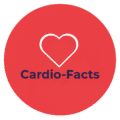Stress and heart health are deeply connected — more than most people realize. In fact, chronic stress doesn’t just affect your mood or sleep; it can trigger real physical changes in your cardiovascular system. From blood pressure spikes to “broken heart syndrome” (Takotsubo cardiomyopathy), the impact of stress on your heart is both powerful and measurable.
How Stress Affects the Heart
When you’re stressed, your body releases adrenaline and cortisol, hormones designed for the “fight or flight” response. While these hormones help in short bursts, chronic activation can:
- Increase heart rate and blood pressure
- Raise blood sugar and cholesterol levels
- Promote inflammation in the blood vessels
- Lead to abnormal heart rhythms (arrhythmias)
Over time, these physiological effects contribute to hypertension, atherosclerosis, and even heart failure in predisposed individuals.
Broken Heart Syndrome: When Emotion Becomes a Cardiac Event
Also known as Takotsubo cardiomyopathy, this condition occurs when intense emotional or physical stress suddenly weakens the heart muscle.
Typical triggers include grief, severe anxiety, accidents, or even extreme happiness — hence the term “broken heart syndrome.”
Key Facts
- Symptoms mimic a heart attack (chest pain, shortness of breath).
- Coronary arteries remain normal, but the heart’s main pumping chamber (left ventricle) becomes balloon-shaped and weak.
- Recovery is usually complete within weeks, but recurrence is possible.
Although the condition is more common in post-menopausal women, anyone under extreme stress can be affected.
The Role of Chronic Stress in Heart Disease
Persistent stress contributes to unhealthy habits — overeating, smoking, excessive alcohol use, or skipping exercise — all of which accelerate cardiovascular disease.
Moreover, studies show that chronic psychological stress alters the autonomic nervous system, leading to increased sympathetic activity and reduced heart rate variability, both predictors of poor cardiac outcomes.
How to Protect Your Heart from Stress
You can’t avoid stress completely, but you can control how your body responds.
Evidence-based strategies include:
- 🧘♀️ Mindfulness and meditation – shown to lower blood pressure and heart rate.
- 🚶 Regular physical activity – reduces cortisol and improves vascular health.
- 🛏️ Adequate sleep – essential for cardiovascular recovery.
- 🫀 Cardiac check-ups – especially if you have hypertension, diabetes, or family history of heart disease.
- 🤝 Social support – maintaining strong connections helps buffer emotional stress.
If you experience sudden chest pain after a stressful event, seek medical attention immediately — it could be more than just anxiety.
Takeaway
Stress and heart health are inseparable. While short-term stress can be harmless, chronic emotional or physical stress can set the stage for serious cardiovascular problems — including heart attacks and stress-induced cardiomyopathy.
Protecting your heart means protecting your mind, too.
🧭 Recommended Wearable Trackers for Stress and Heart Health
Monitoring your stress and heart rate in real time can help you detect early warning signs and improve overall cardiovascular resilience.
Here are three clinically validated wearable devices that combine comfort, accuracy, and science-based insights.
🩺 1. Fitbit Sense 2 – Advanced Health & Stress Tracker
💡 Why it stands out:
- Continuous heart rate and ECG monitoring
- Daily “Stress Management Score” based on HRV, skin temperature, and sleep
- Guided breathing and mindfulness reminders
- Works with both Android and iOS
Ideal for anyone who wants to see how stress physically affects their heart.
⌚ 2. Garmin Venu 3 – Smartwatch for Health & Fitness Tracking
💡 Why it stands out:
- High-precision heart rate and HRV measurement
- Body Battery™ energy monitor for stress recovery
- Detailed sleep and respiration tracking
- Long battery life (up to 10 days)
Great for athletes and busy professionals tracking their stress recovery balance.
❤️ 3. Polar Ignite 3 – For Mind-Body Connection
💡 Why it stands out:
- Personalized breathing and relaxation guidance
- Accurate heart rate via Polar Precision Prime™ sensor
- Sleep stages, HRV, and recovery metrics
- Lightweight and minimalist design
Perfect for users focused on mindfulness and heart resilience.
🧩 Disclosure
Some of the links above are affiliate links. As an Amazon Associate, CardioFacts earns a small commission from qualifying purchases — at no extra cost to you.
🧠 Frequently Asked Questions (FAQ)
1️⃣ Can stress really cause heart problems?
Yes. Chronic stress can lead to high blood pressure, inflammation, and unhealthy habits like smoking or overeating — all of which increase your risk of heart disease. Stress hormones such as cortisol and adrenaline can also strain the cardiovascular system over time.
2️⃣ What is “Broken Heart Syndrome”?
Also known as Takotsubo cardiomyopathy, this is a temporary heart condition triggered by extreme emotional or physical stress. It causes symptoms similar to a heart attack, but coronary arteries are usually normal. Most patients recover within weeks.
3️⃣ How can I protect my heart from stress?
Regular exercise, mindfulness, deep breathing, and maintaining healthy social connections help reduce stress and improve heart health. Getting enough sleep and attending regular medical check-ups are equally important.
4️⃣ Who is most at risk for stress-related heart issues?
Middle-aged and postmenopausal women appear to be more susceptible to Broken Heart Syndrome, while people with existing heart disease, hypertension, or anxiety disorders are also at higher risk for stress-induced cardiac events.
5️⃣ Can managing stress actually improve heart health?
Absolutely. Clinical studies show that stress management interventions — such as meditation, yoga, and cognitive-behavioral therapy — can reduce blood pressure, improve heart rate variability, and enhance overall cardiovascular resilience.
🧩 References
- Gill A, et al. A Narrative Review on Mental Stress and Cardiovascular Health. 2023. https://journals.lww.com/hhmi/fulltext/2023/07020/a_narrative_review_on_mental_stress_and.3.aspx
- Zulfaj R, et al. Editorial: Reviews in Takotsubo Syndrome. 2024. https://www.frontiersin.org/journals/cardiovascular-medicine/articles/10.3389/fcvm.2024.1446689/full
- Vaccarino V, et al. Mental health disorders and their impact on cardiovascular disease. The Lancet E-Clinical Medicine Series (2025). https://www.thelancet.com/journals/lanepe/article/PIIS2666-7762(25)00165-6/fulltext
⚠️ Disclaimer: The content on Cardio-Facts is for informational and educational purposes only and does not constitute medical advice. Always consult a qualified healthcare professional regarding your health. Read our full disclaimer and legal policies.
